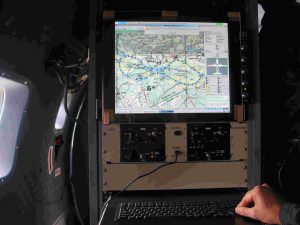The Trump administration formally withdrew from the 34-nation Open Skies Treaty on November 22 after serving the obligatory six-months’ notice to do so in May this year. The treaty, which came to force in 2002, allows signatories to conduct reconnaissance flights over the territories of others on 72-hours notice in order to gather information about the military preparedness and other activities, effectively serving as a confidence-building measure. While not an arms control treaty by itself – its terms do not impose caps on weapons themselves – it serves to support verification of arms control agreements such as the Chemical Weapons Convention, among others.
This is the fourth arms control and related agreement the Trump administration has either withdrawn from or gravely imperiled. In 2018, the United States withdrew from the Joint Comprehensive Plan of Action (JCPOA), an agreement involving the European Union, Germany, the five permanent members of the United Nations Security Council, and Iran, under which Tehran agreed to cap its nuclear activities and place them under stringent international monitoring. In April last year, the U.S. withdrew from the Intermediate-range Nuclear Forces (INF) treaty, citing Russian cheating.
The Trump administration’s obtuse position on the New START Treaty, which is set to expire in February, has also put it in serious jeopardy even though modest, though confusing, signs emerged last month that suggested Russia and United States were close to reaching an agreement to renew it. In the past, the Trump administration has demanded that New START include China as a party. Given the vast disparity between the sizes of the American and Russian nuclear arsenals on one hand, and China’s on the other, many analysts have called the proposal for a trilateral New START a non-starter.
Announcing that the U.S. was no longer party to the Open Skies Treaty, Secretary of State Mike Pompeo tweeted, “America is more secure because of it, as Russia remains in non-compliance with its obligations.” Understandably, the Democratic Party remains opposed to Trump taking a sledgehammer to the entire edifice of international security agreements. Bloomberg quoted Senator Bob Menendez of the Senate Foreign Relations Committee as saying in a statement, “The administration’s decision to abandon the treaty fits into a broader pattern of discarding arms control and non-proliferation agreements, raising deep concerns among our allies about our commitment to their security.” According to the outlet, Menendez also urged the incoming Biden administration to rejoin it.
But that might be easier said than done. The Wall Street Journal reports that not only did the Trump administration exit the Open Skies Treaty, but it has also moved to discard the two special purpose OC-135B reconnaissance aircraft used for overflights, designating them as “excess defense articles.” Explaining what that means, a senior U.S. official told the Journal: “We’ve started liquidating the equipment,” adding “Other countries can come purchase or just take the airframes. They are really old and cost-prohibitive for us to maintain. We don’t have a use for them anymore.” This decision – which Carnegie nuclear policy expert Toby Dalton termed “more salting of the earth” in a tweet – will make it harder for the Biden administration to rejoin the treaty even if it wants to.
The Trump administration has considered arms control and associated verification measures such as the Open Skies Treaty a relic of the past. In a statement about the latest move, National Security Advisor Robert O’Brien said Trump “never ceased to put America first by withdrawing us from outdated treaties and agreements that have benefited our adversaries at the expense of our national security.” Simultaneously, the Trump administration has pushed ahead with an expensive commitment to nuclear-weapons modernization and acquisition of new capabilities – such as mobile ICBM interceptors – that stand to imperil strategic stability.

































